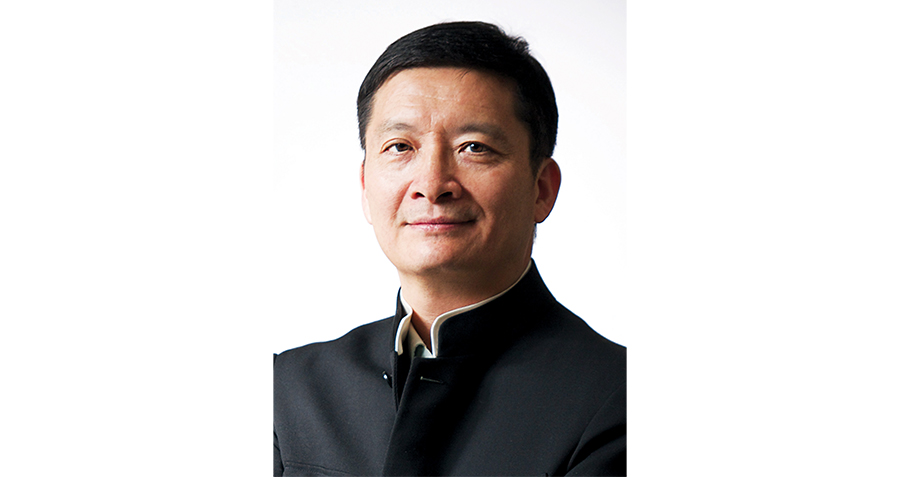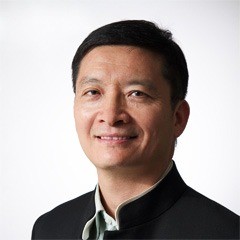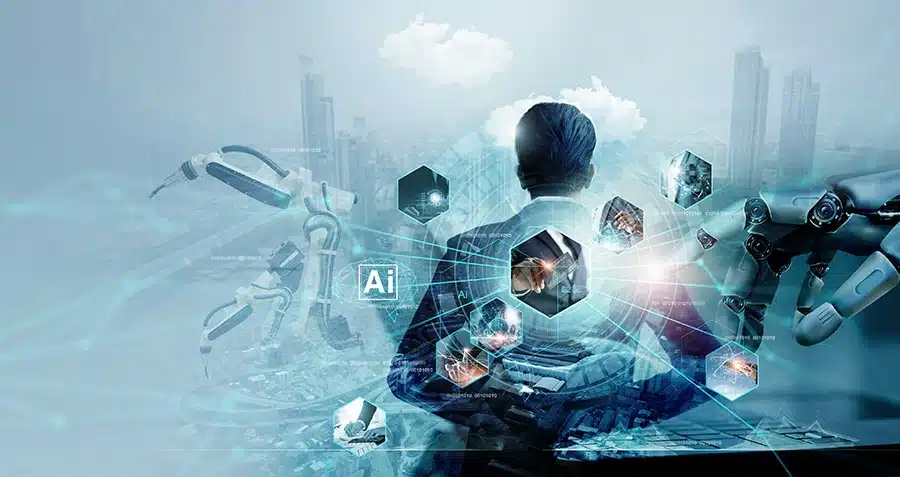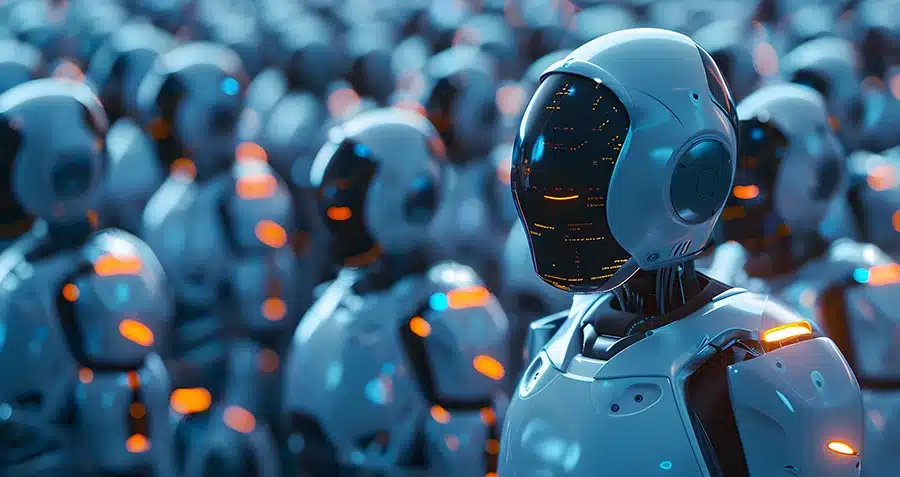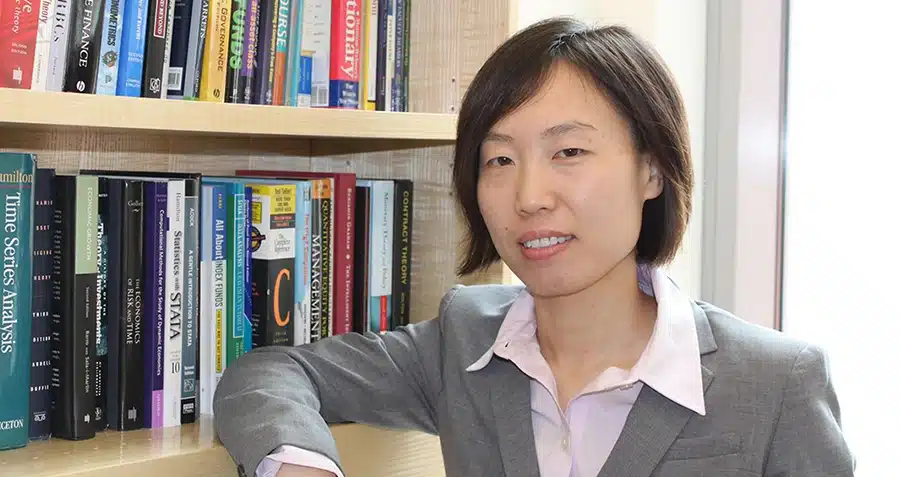The nature of humanity and its underlying motivations have been a source of discussion for millennia. There are many different philosophies, with some saying that humans are simply animals with a language, others that we are animals with tools or that we are unique beings with beliefs and spiritual goals. In his recent book, Defining Humans: A Violence-Centric and Structured Approach to Human Development, Professor Wang Yijiang puts forward the idea that all of the different approaches to human nature are centered on the simple, fundamental idea of violence and the need to survive and that we need to accept the violent nature of the world as a fact in order to deal with the issues and challenges of the modern world.
In this interview, Wang Yijiang, Professor of Economics and Human Resource Management at CKGSB, discusses what defines a human being, how violence underpins the development of different cultures and belief systems and the implications of his philosophy on how we view economic and market relationships.
Q. What would you say defines a human being?
A. A driving force of human evolution is violence, i.e. humans evolved in a violent world and needed to develop as much a capacity for violence in order to survive attacks by violent animals as well as fellow humans. Such a capacity is made up of physical, social and phsychological aspects.
One way to define a human is a three-ring model, with each of them representing a particular type of existence of a human being. The first ring describes the human as a natural being, similar to all animals, in which we have two essential conditions: we need food to survive and to reproduce. The second ring describes our social beings. We all belong to social groupings of one type or another. Nobody can survive in this world unless they join a group and fight and work together. The third ring discusses our internal being, consisting of our psychology and spiritual existence, our knowledge stock and our beliefs. A human being is the [result of the] coexistence of these three things, but the question is how they relate to each other.
The answer is, that because food and sex for reproduction are scarce resources, we want to aggregate as much of these as possible. But given their scarcity, one must distinguish oneself in some way to access them. And I believe that those who are more violent prove to be more successful in doing this, and that people fight to prioritize themselves in this area of distribution. But as individuals we are not necessarily the strongest creatures in nature, so it is those who are better organized that can succeed and this is why we need to be social to continue our existence.
Q. Violence in the form that most understand it makes sense from an evolutionary standpoint, particularly in the first ring, but how would you say that violence manifests itself in the social or spiritual realms?
A. It extends from the physical violence required to survive throughout history. We needed to protect and support ourselves via the use of, say, a tribe in years gone by, and we are now simply further down the evolutionary line. As human civilization evolves, we have seen the growth of larger and larger social groups, from tribes, to primitive forms of government, to modern states, as well as religious groups and so on. Each of which has some history of violence with others.
One basic fact about violence is that those who are part of larger groups tend to have advantages when people start fighting each other. And those more capable of forming and managing larger social organizations to do so, are whoever has a higher understanding of social relations and the world around us. In other words, it is our consciousness and knowledge stock that allow us to better form and manage larger social groups, as well as allow us to ask questions regarding why this violence exists and what it is used for.
Q. There has been a rise in loneliness in younger people as well as a drop in birth rates in many countries around the world. To what extent are these challenges to this natural grouping?
A. Most of the time throughout our evolutionary history, having too few people has been the main challenge for the survival of existing groups. This means that all social goals were in some way designed to try and expand numbers. But today, we have suddenly reached a point where human survival doesn’t seem to depend as much on how large a group you have, and we are in a position where the assurance of survival is present—unless you are a victim of a crime or an illness, you are likely to survive through life—so people are choosing different approaches than before.
These are certainly new challenges, and we don’t have a clear roadmap of where human development is going today. The development of AI, for example, is a potentially fundamental shift, one that we haven’t really seen before.
Q. How would you say that these characteristics differ depending on cultural contexts?
A. I think all human cultures serve the same purposes, and this is defined by our need to survive. For example, all cultures teach us how to deal with other people in the same social groups, as well as those who are not in those groups. We are taught to be honest, friendly, altruistic and so on, all ingredients needed for a group to stay strong and better cooperate in fighting for survival.
The main difference may be that how to achieve that kind of relationship may be taught differently depending on cultures or ideas behind the social group. For example, many religions utilize the idea of people in the grouping being children of God to justify bringing that particular group of people together. Whereas Chinese traditional culture guides people’s relationships using the idea of Sāngāng Wǔcháng (三綱五常), or three fundamental bonds and five constant virtues. The bonds emphasize the importance of relationships including that of father and son, while the virtues are ideas such as benevolence or trustworthiness.
These are both slightly different sets of moral principles, and there are many others around the world, but they all serve the same purpose, which is to promote internal coherence and unity so that a group can better fight other groups.
Q. We live in an increasingly interconnected world with more communication tools than ever. How would you say that this has affected the separation of cultural contexts?
A. A major change is that people now largely have the option to decide which group they belong to. In the past, if you were born into a tribe, you would stay there. But today, there are options to change your nationality or your religious beliefs. As people take in more information and are influenced by others, their eyes are more open to look around and decide which group fits them best, where they feel they belong and can contribute more. The US is a good example, with people from all over the world moving there to join the group and become Americans.
Better communication allows people to better understand each other and see things from different perspectives. However, control of technology has a significant impact in this area, and algorithms can have an influence on what you see and how you see it, changing the way you see social groups as potentially friendly or hostile. The impact of technology on relationships within and between groups is hard to measure and it can be both a positive and negative, it really depends on who controls it.
Q. As a professor of human resources, what do you see as the business implications of these ideas?
A. In terms of economics and management, what this philosophy tells people is that there is probably never a pure market relationship, nor a pure economic relationship. All relationships have their political and social aspects, and in order to make effective business, economic or management decisions, we need to keep in mind these aspects, rather than looking at them purely through the lens of the market.
Technology, AI, semiconductors and other similar businesses are also good examples of game-changers, because they are very closely linked to geopolitical differences. Not very long ago, the world was looking at all the benefits of increased globalization such as improved efficiency and resource allocation resulting in a better life for most people. But now that people have started to do better economically and they have more resources, how are they going to be used? It has political and strategic implications on the world and determines who is going to be the dominant force. Clearly this is not just a purely economic issue and the thinking switches from globalization for better efficiency to how to prevent others becoming stronger than oneself.
From a management perspective, when thinking of human motivation, we often turn to Maslow’s Hierarchy of Needs, which suggests more material means to motivate those on the lower levels (e.g., people with lower incomes) and more social and spiritual motivations for more successful people.
My three-ring model suggests that all humans are born with all three needs—i.e., material needs for physical survival, social needs for recognition and acceptance, as well as psychological needs for dreams, ambitions and creative thinking, all simultaneously exist in every human at the same time. Great leaders and great organizations are those who can wake up people’s dreams and persuade them to pursue their dreams rather than motivating people only with material incentives and moving up Maslow’s hierarchy only after people’s material needs are satisfied.
Q. How can these concepts and ideas be used as tools to deal with current global issues?
A. Well, to some degree I think that although these ideas and research findings can help illuminate how and why we act in certain ways, it is unlikely that we can unpick the natural laws that have governed humanity throughout our history. People will continue to build their social groups in order to protect themselves from violence and at a certain point, they might use the tools they have created for more than just defense. The only real hope that we have is a greater use of the tools provided by the aspects of our third ring of being, our psychological and spiritual selves, and to try and help rationality to prevail.
Interview by Patrick Body





